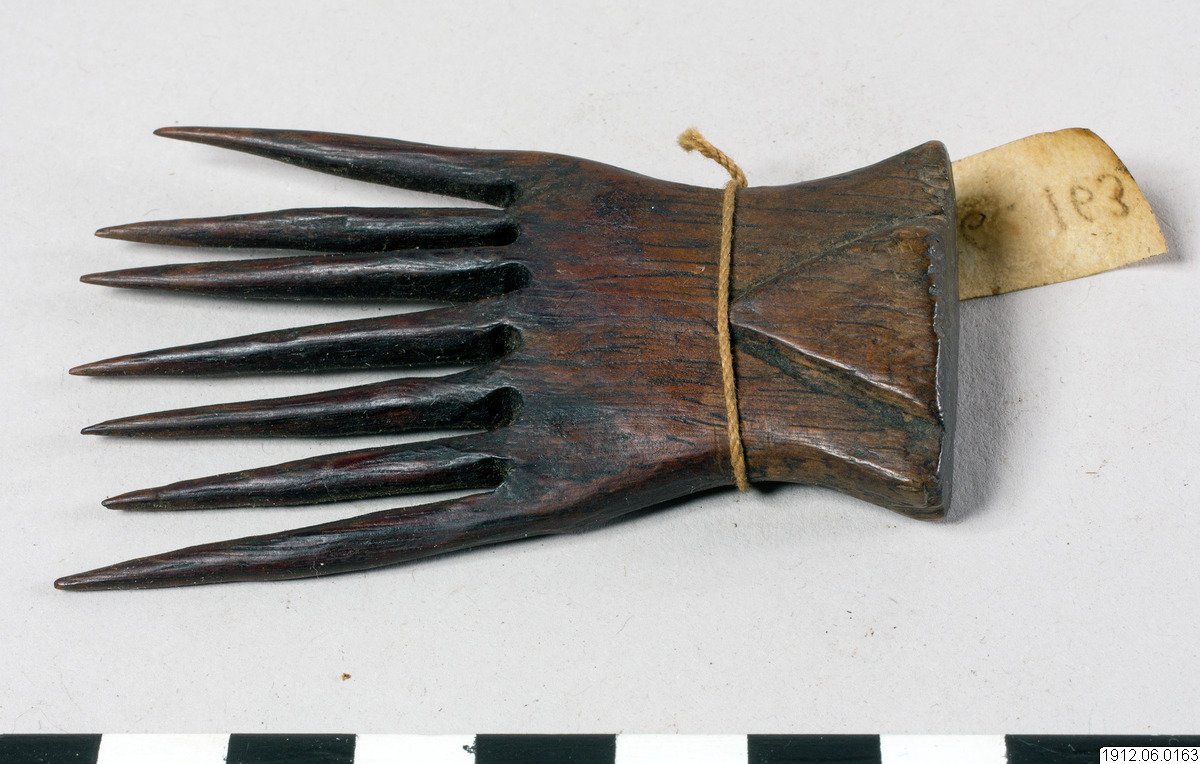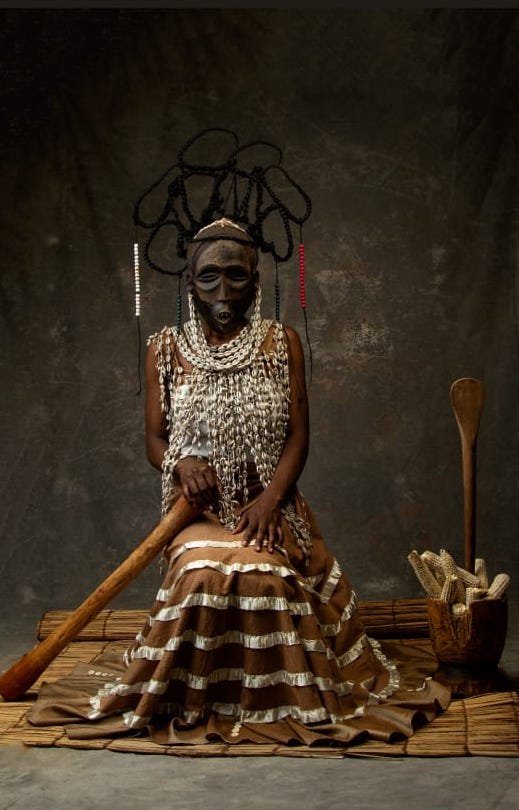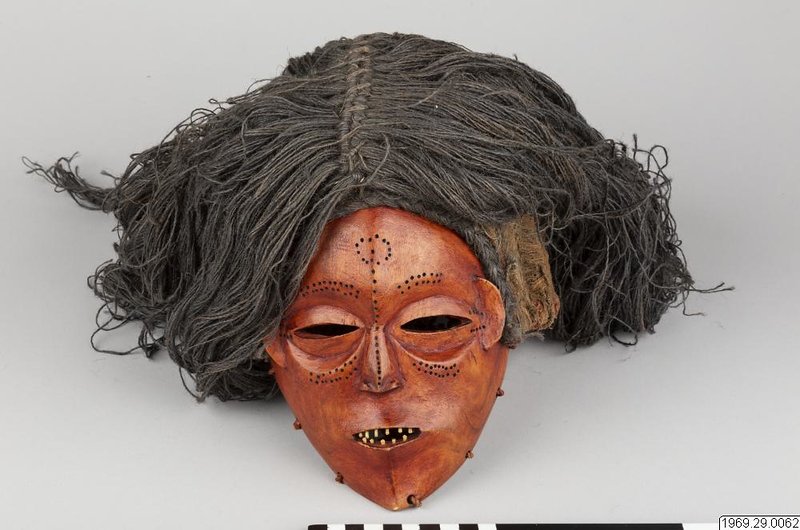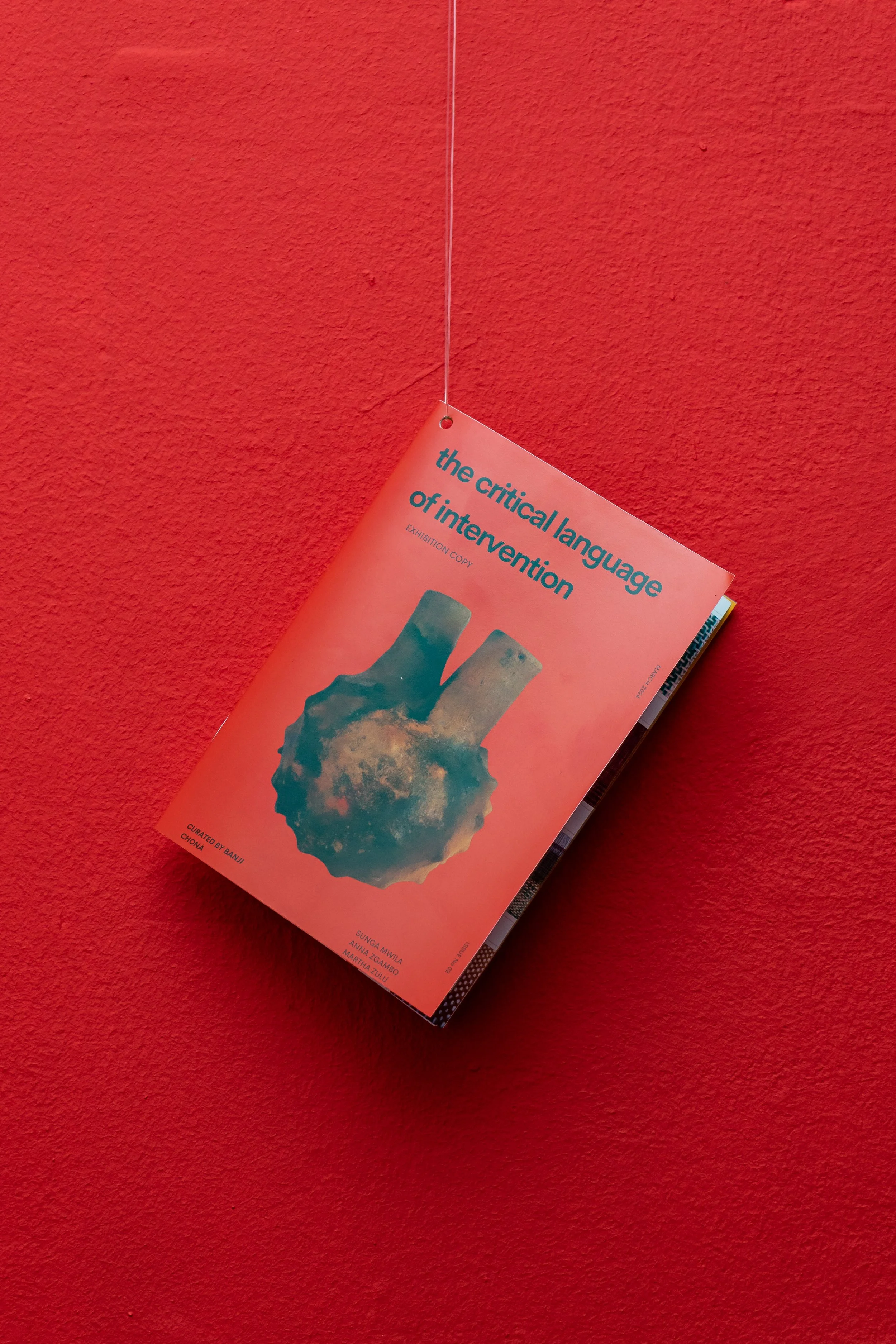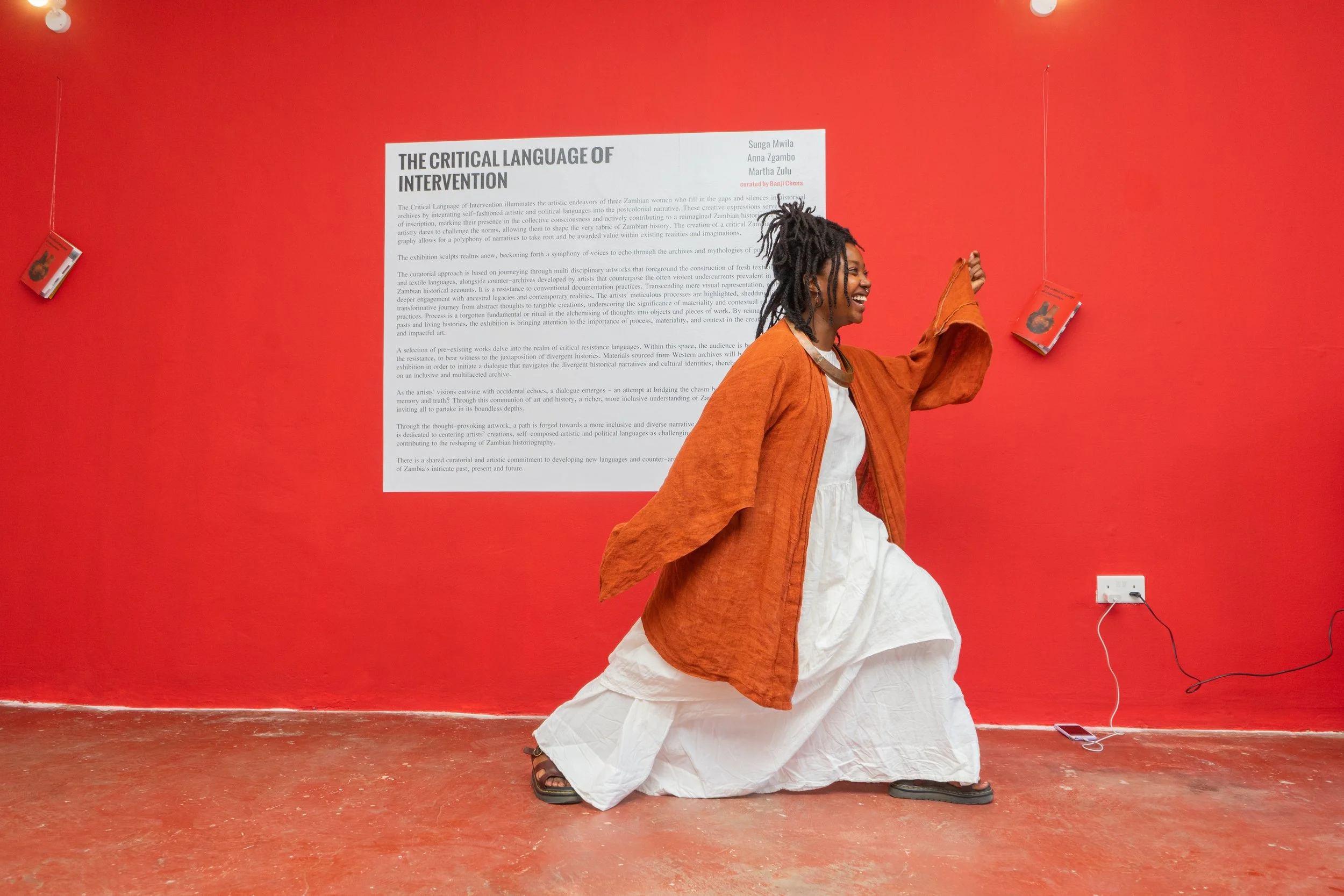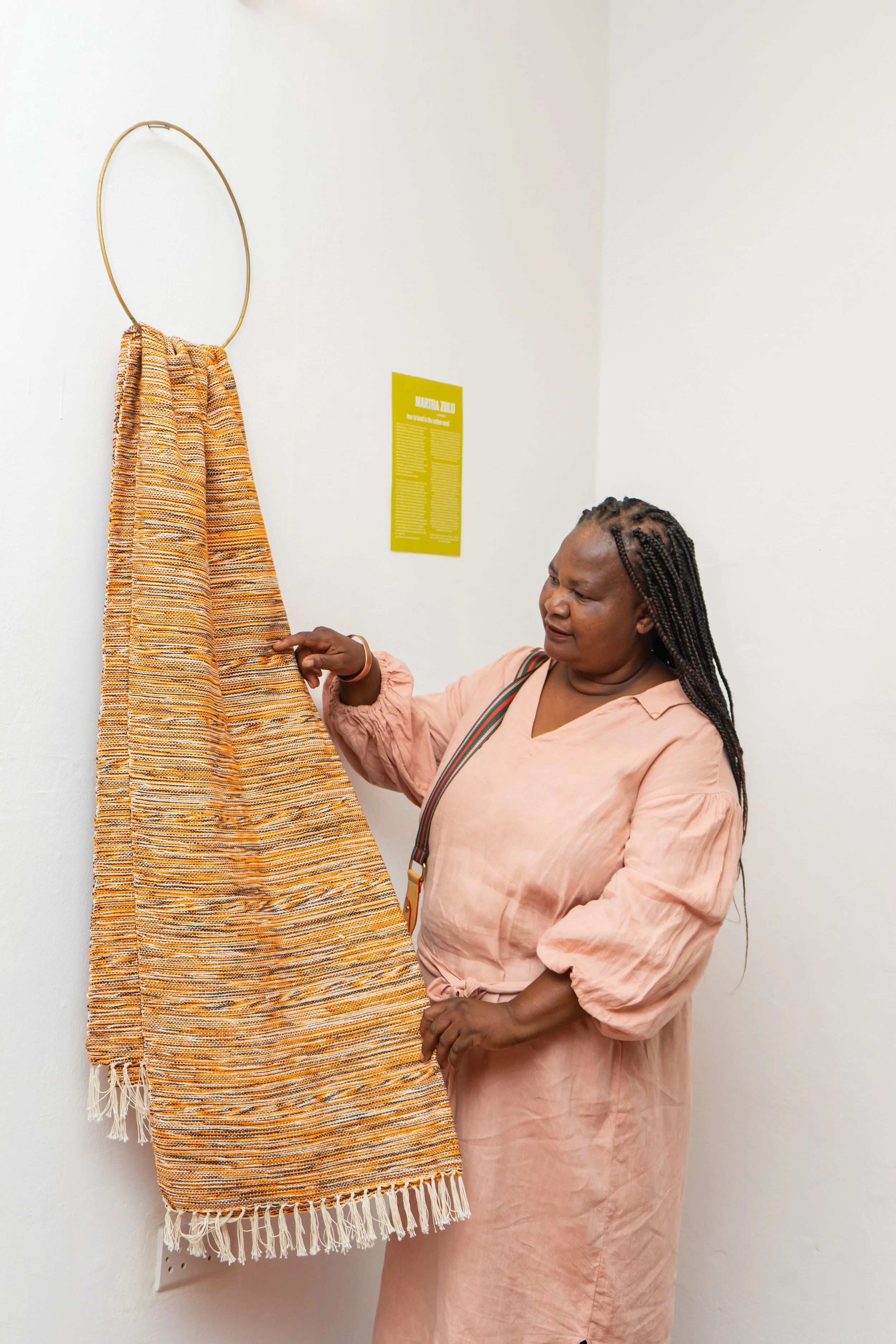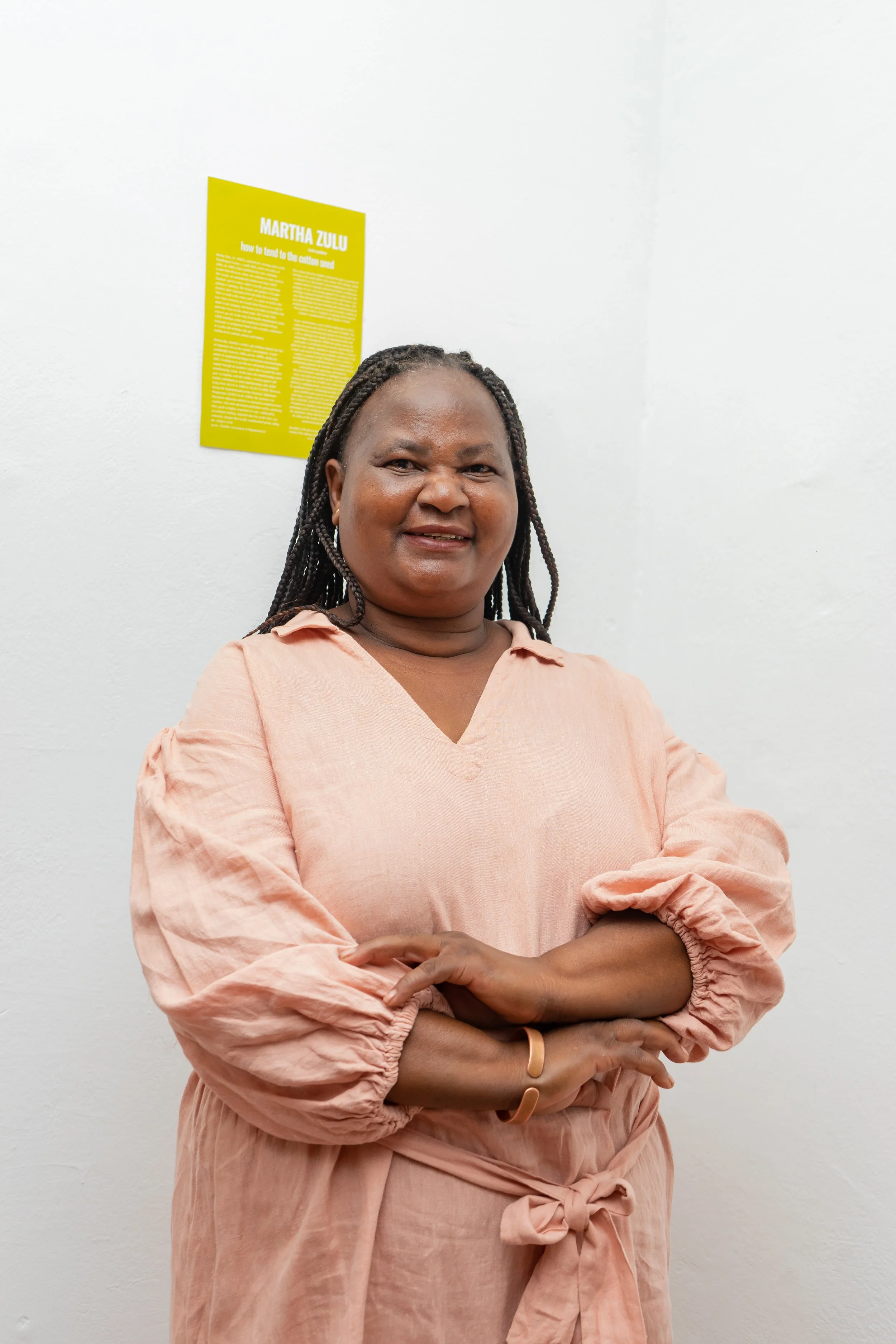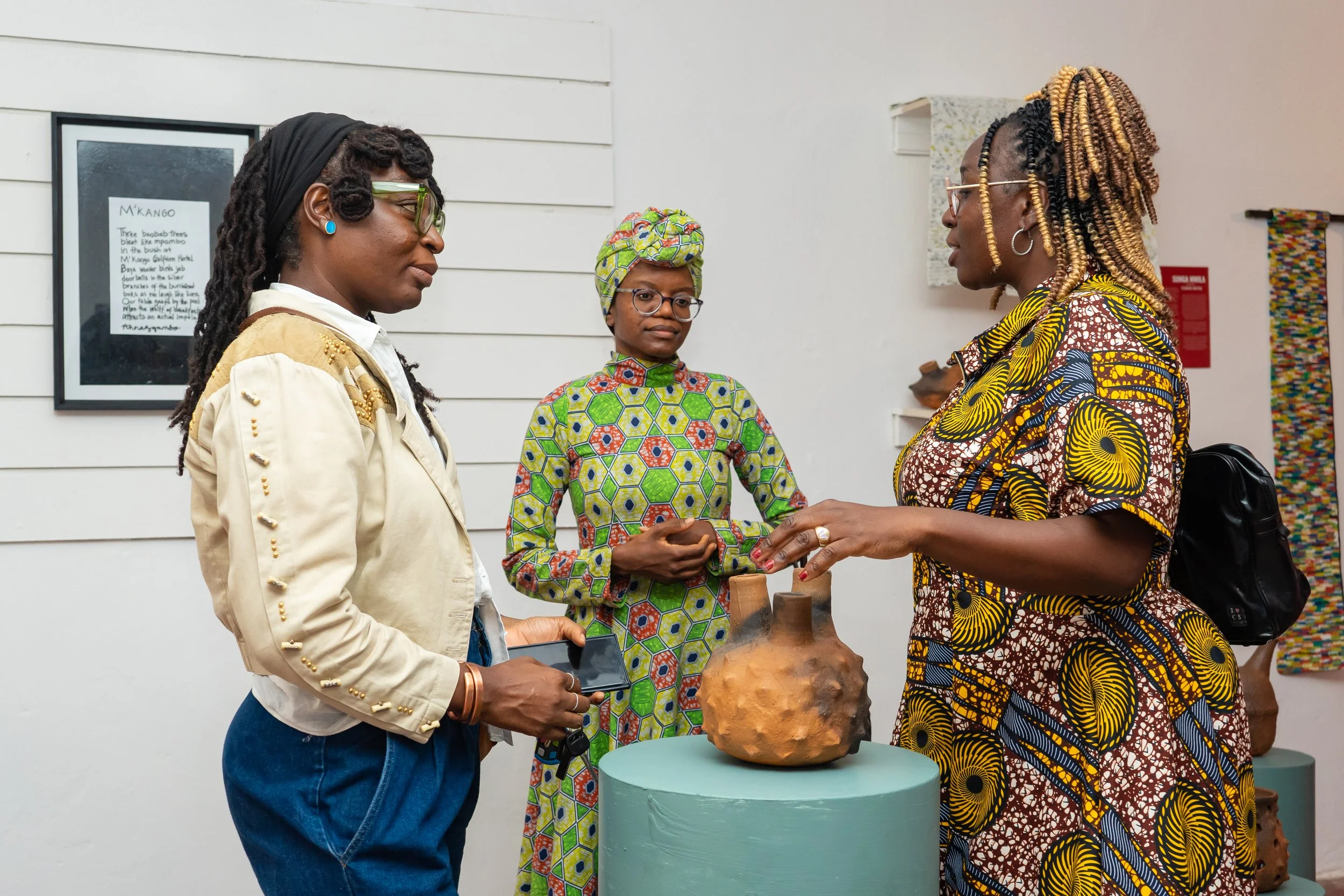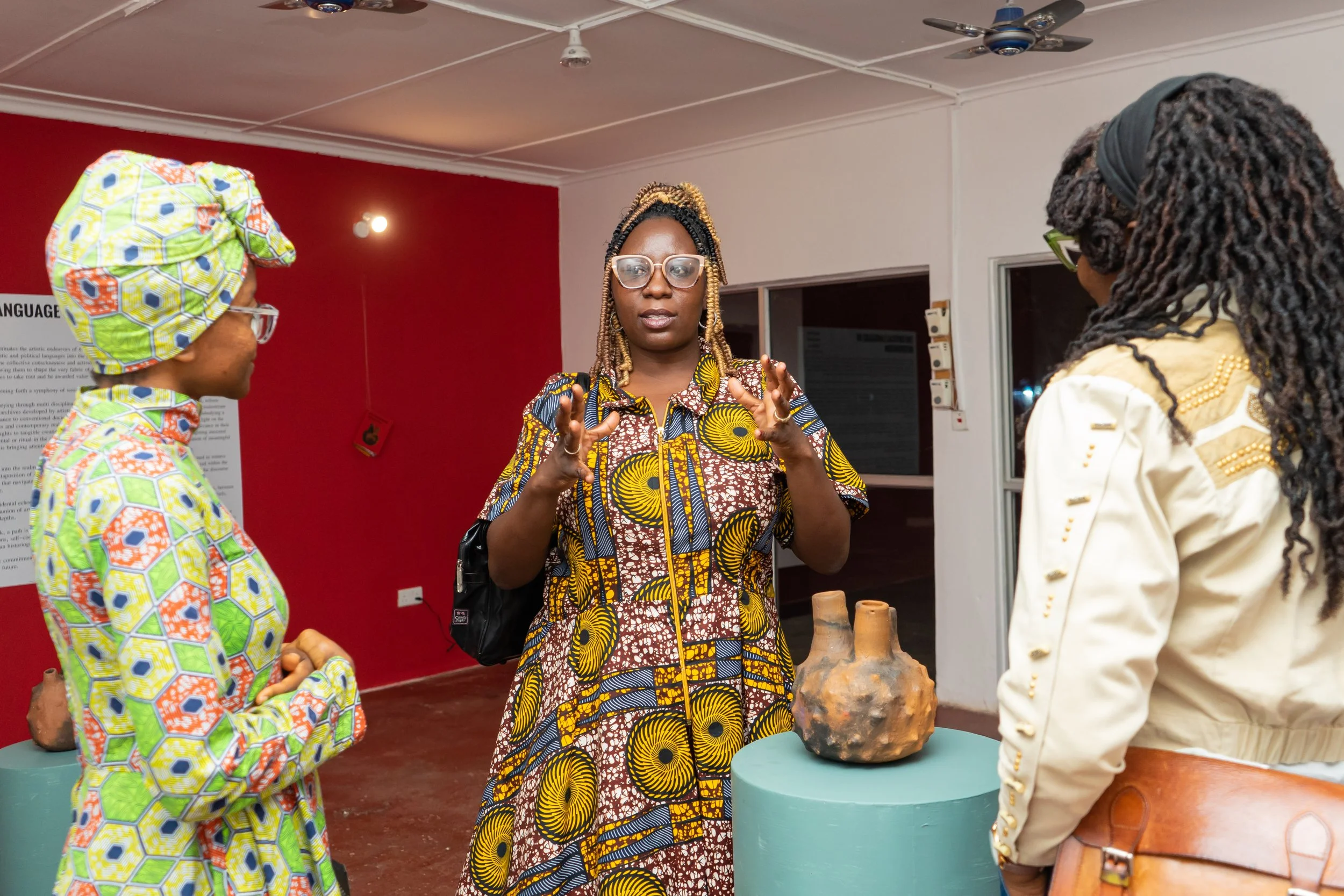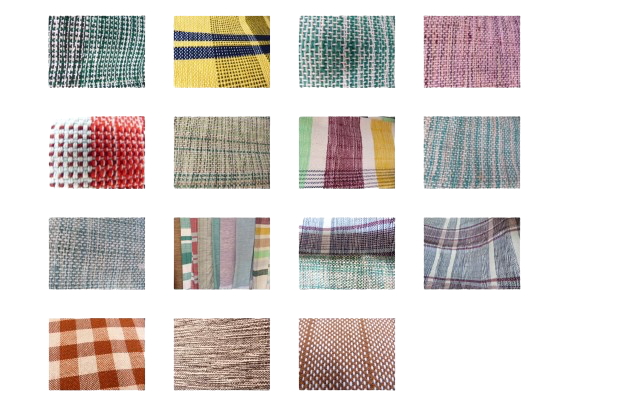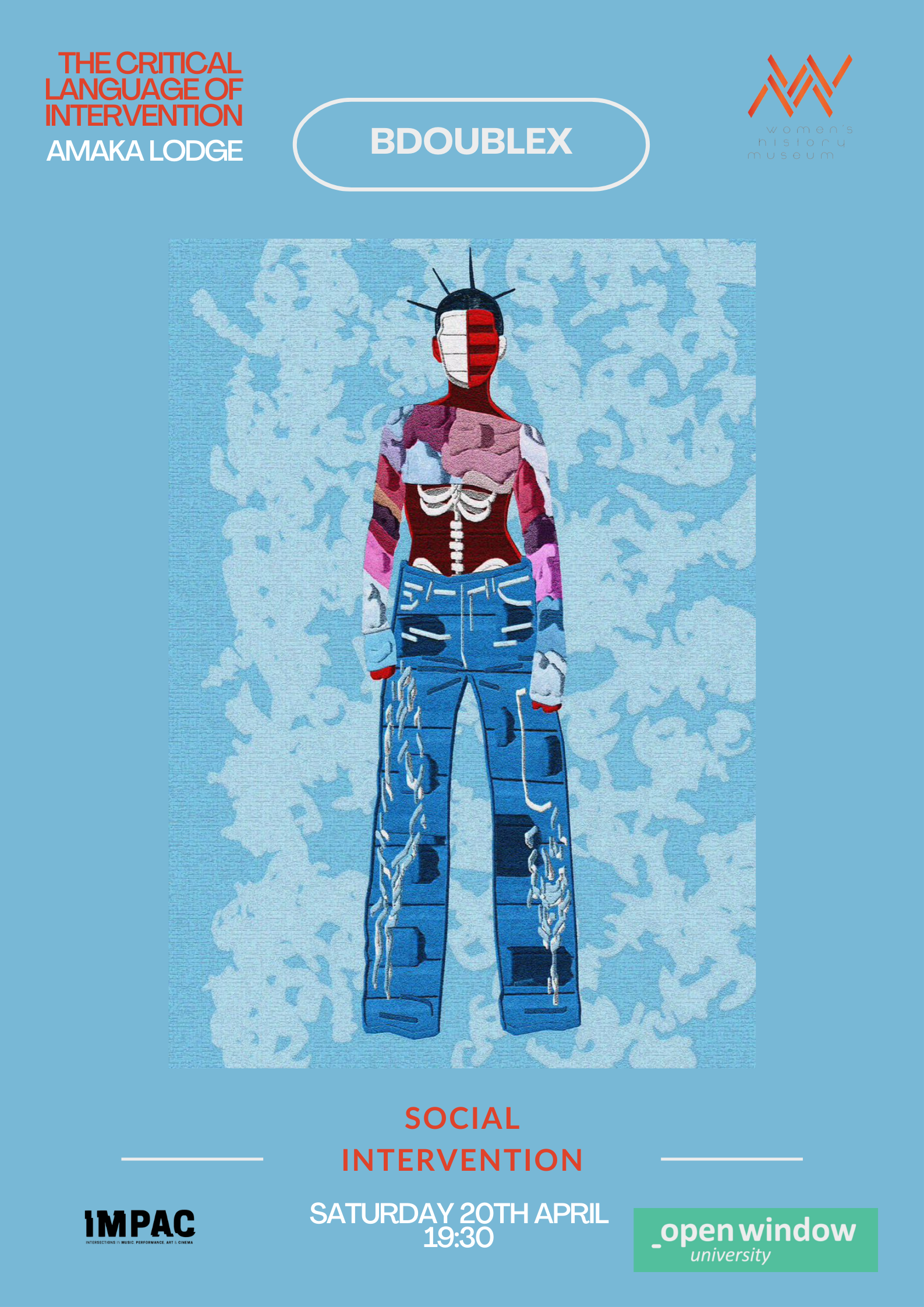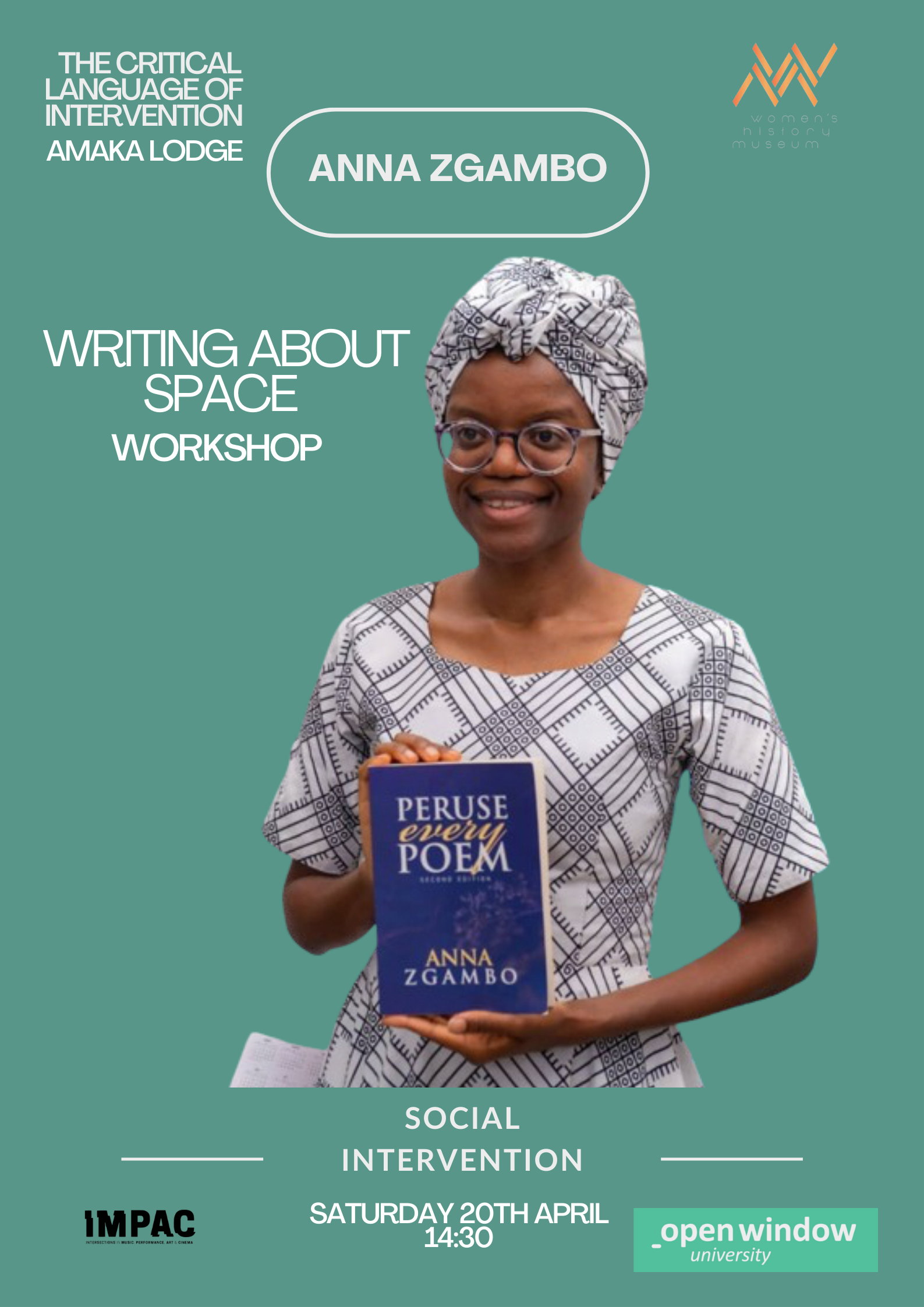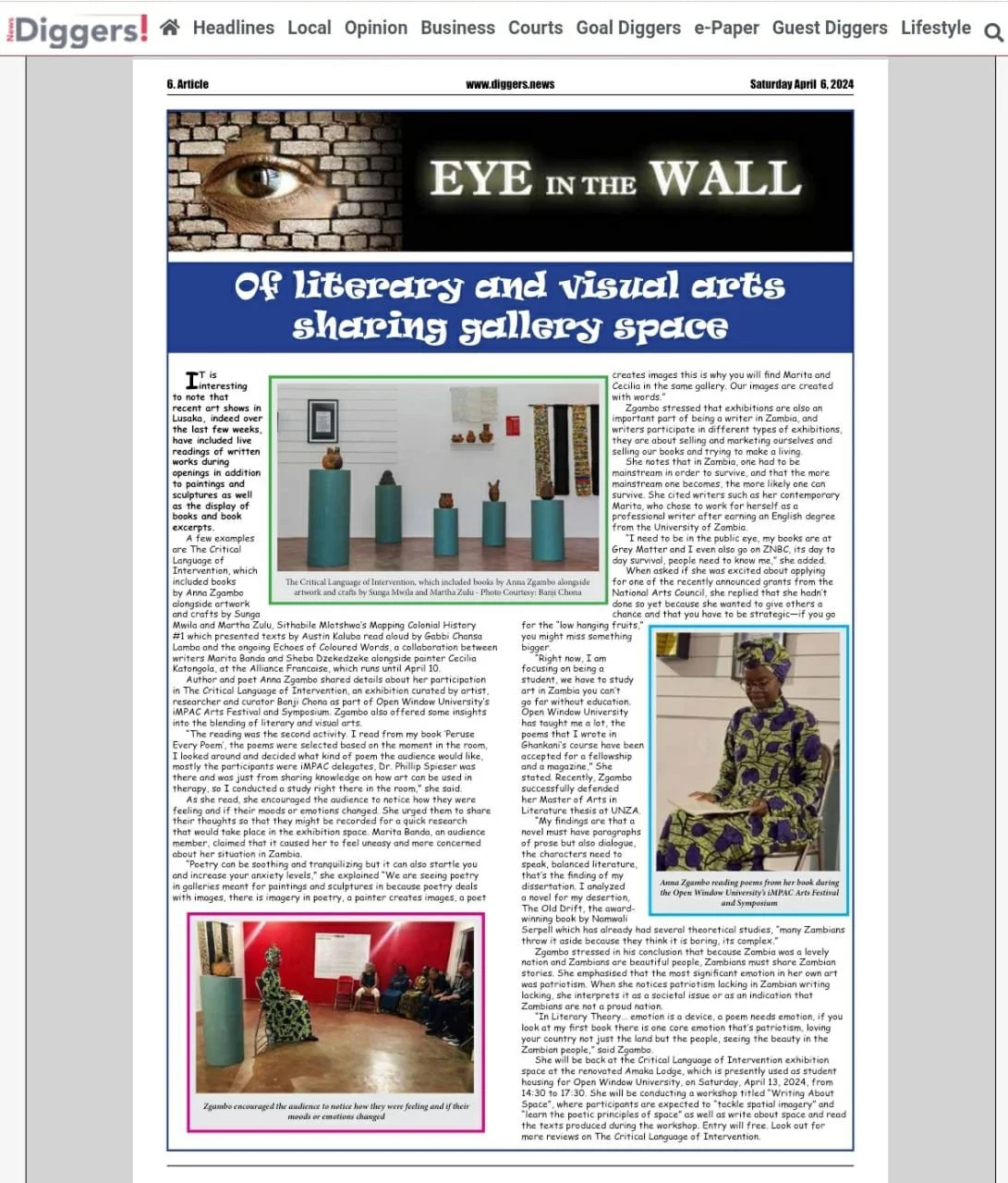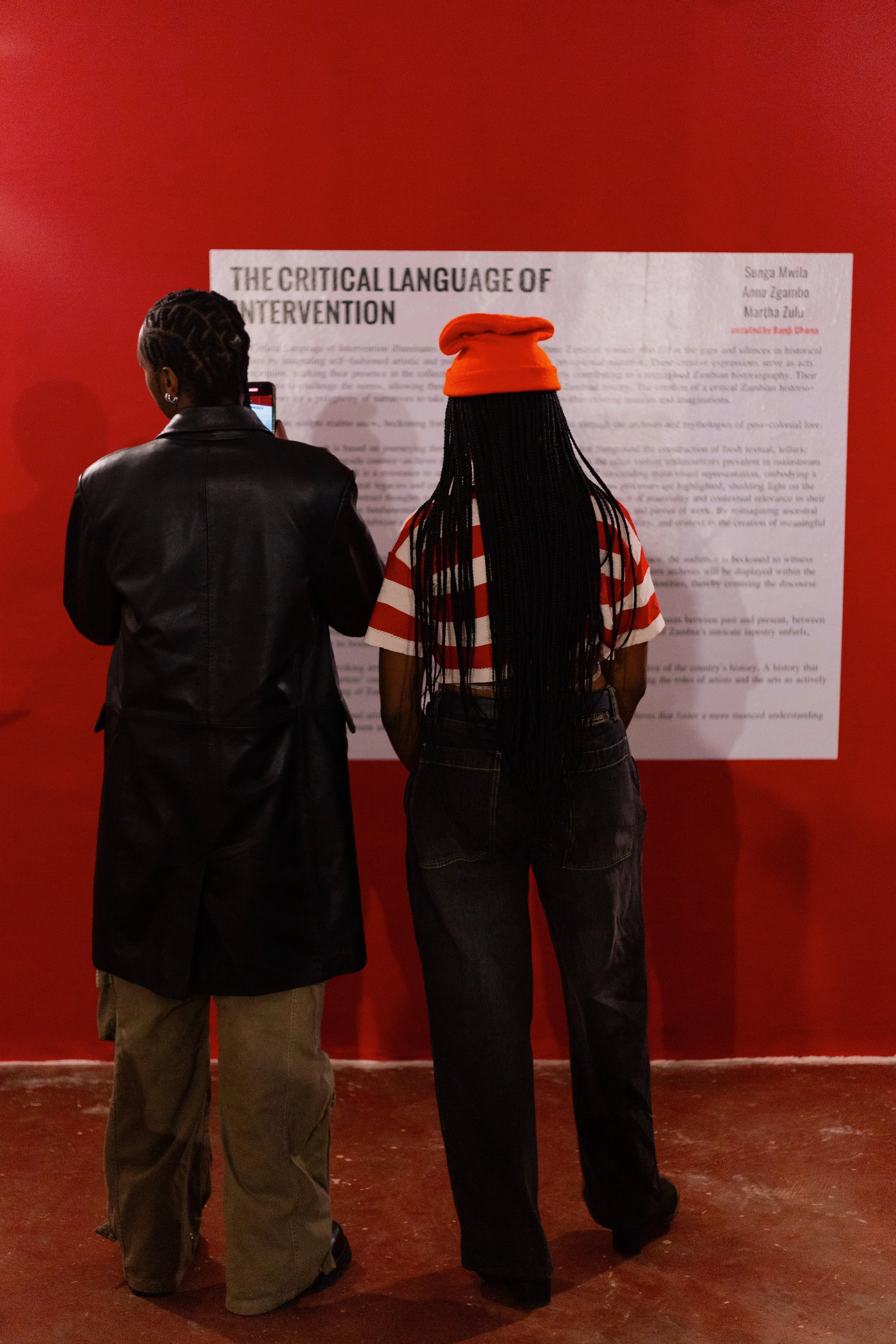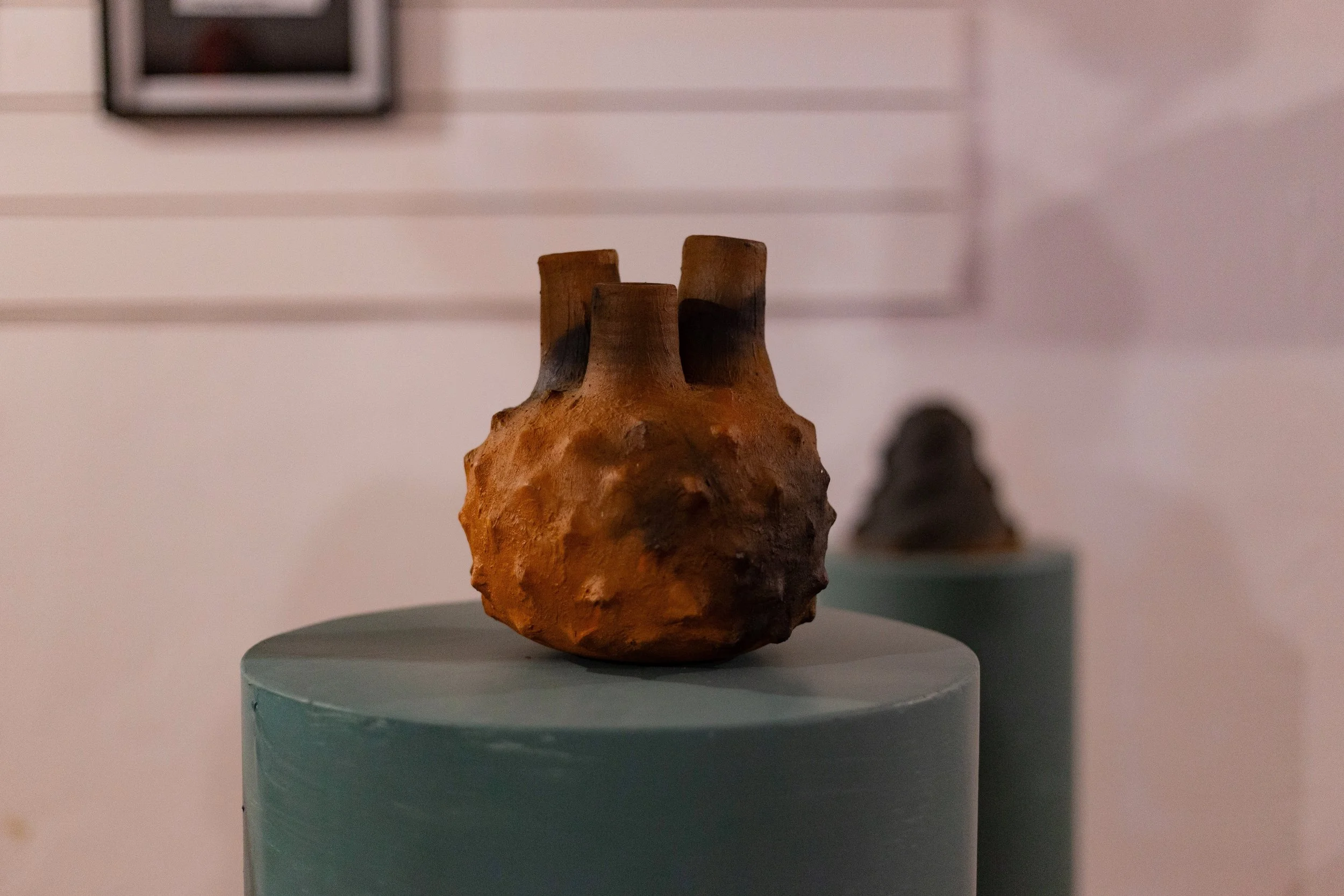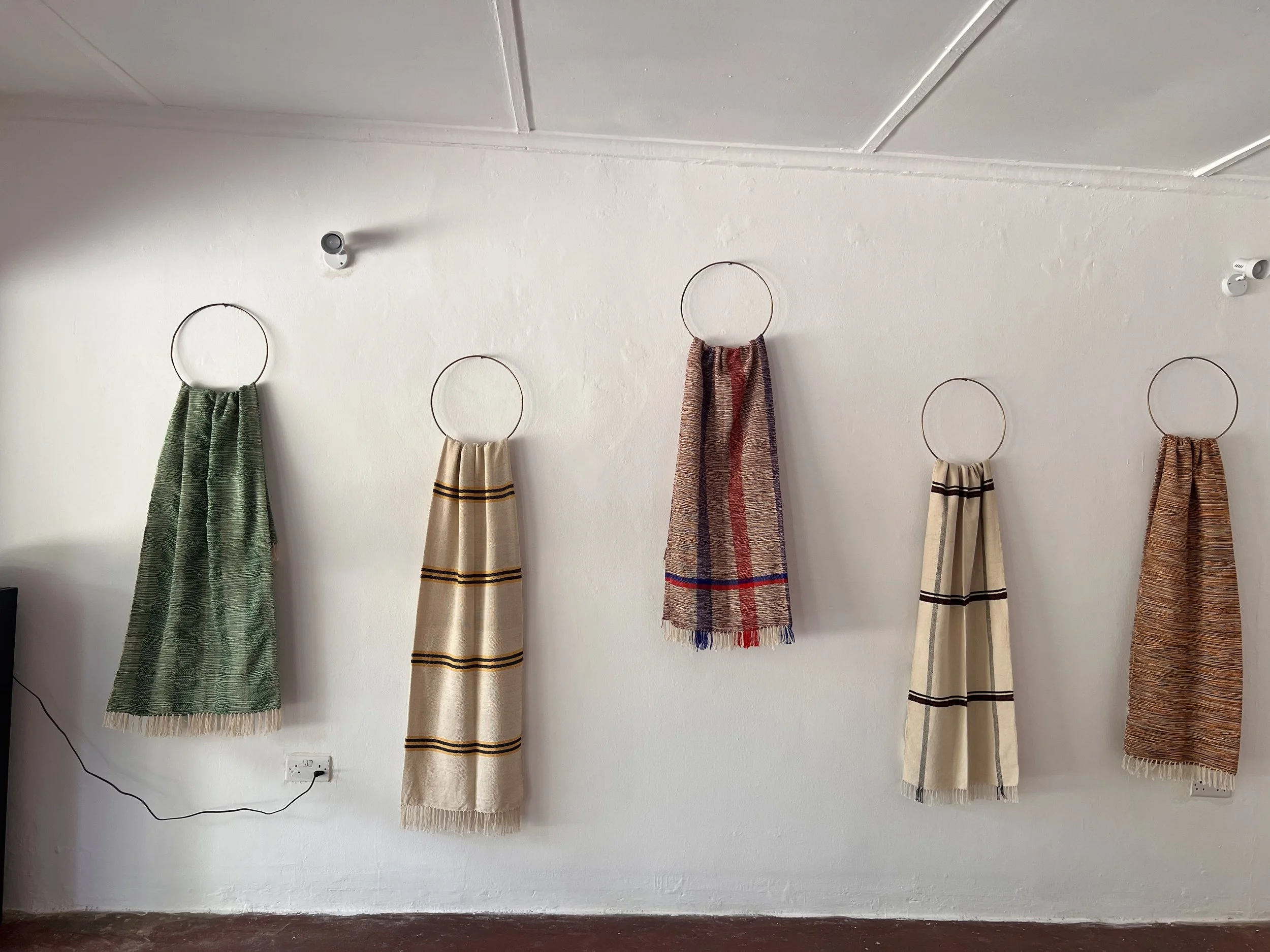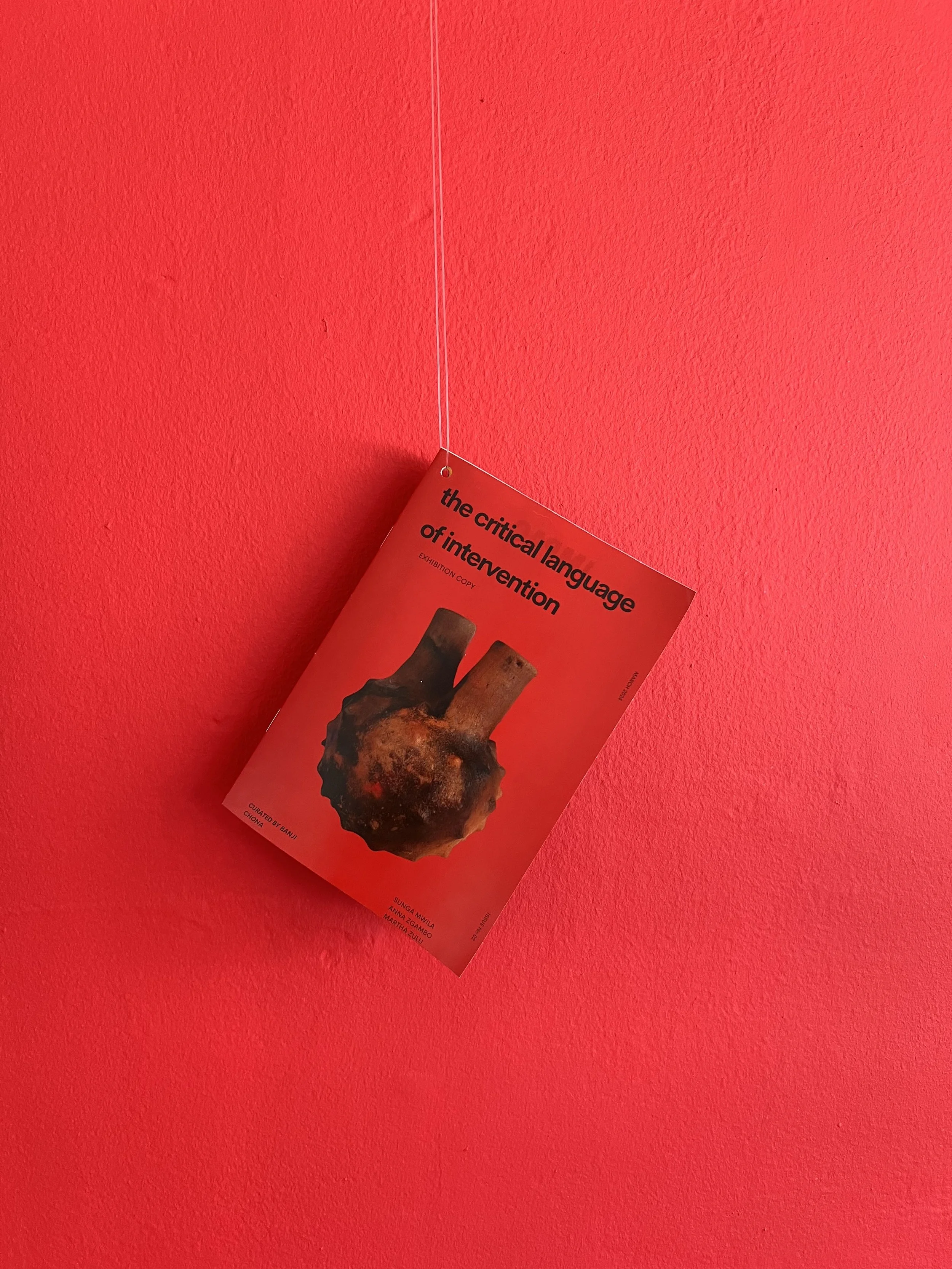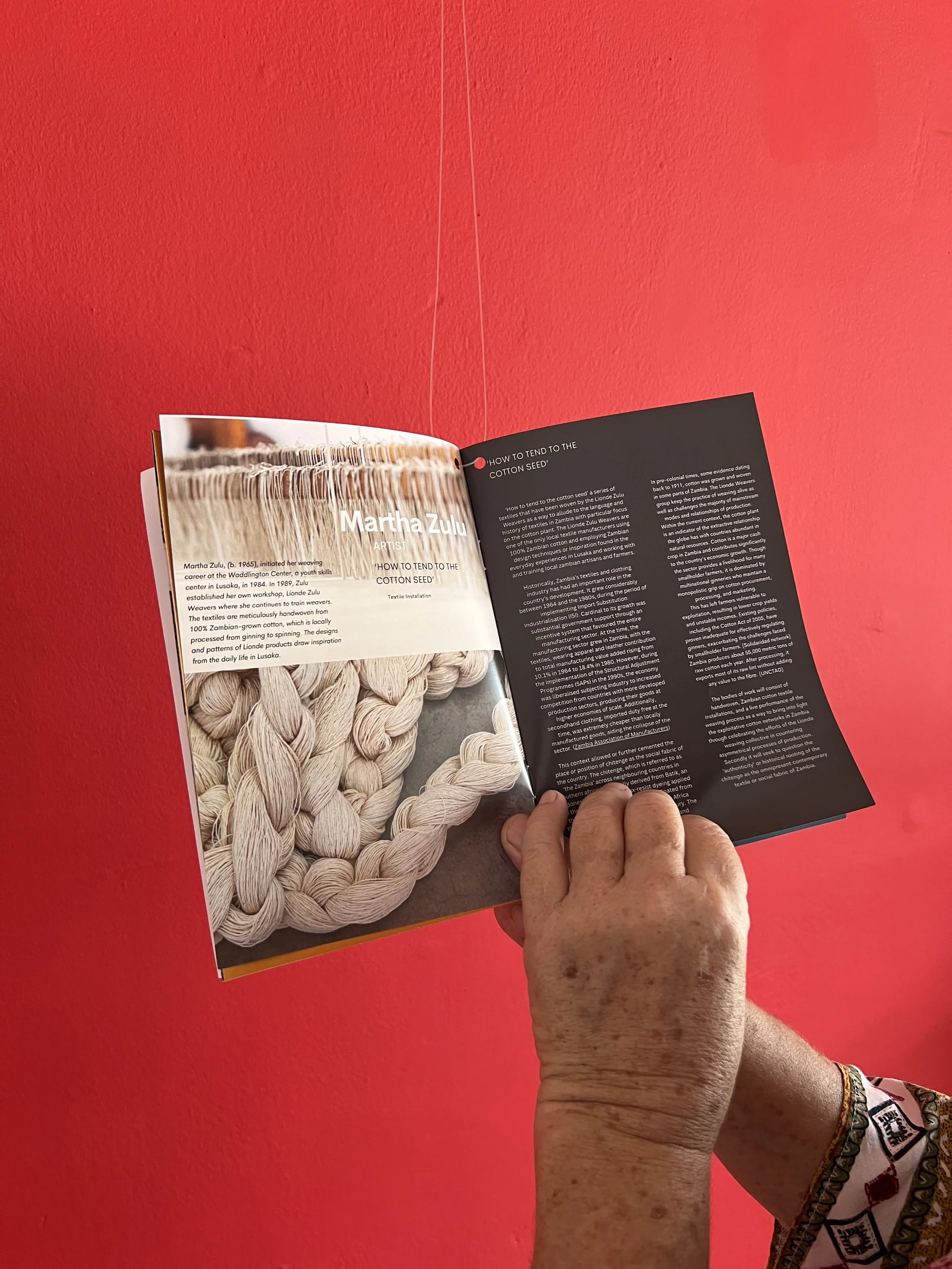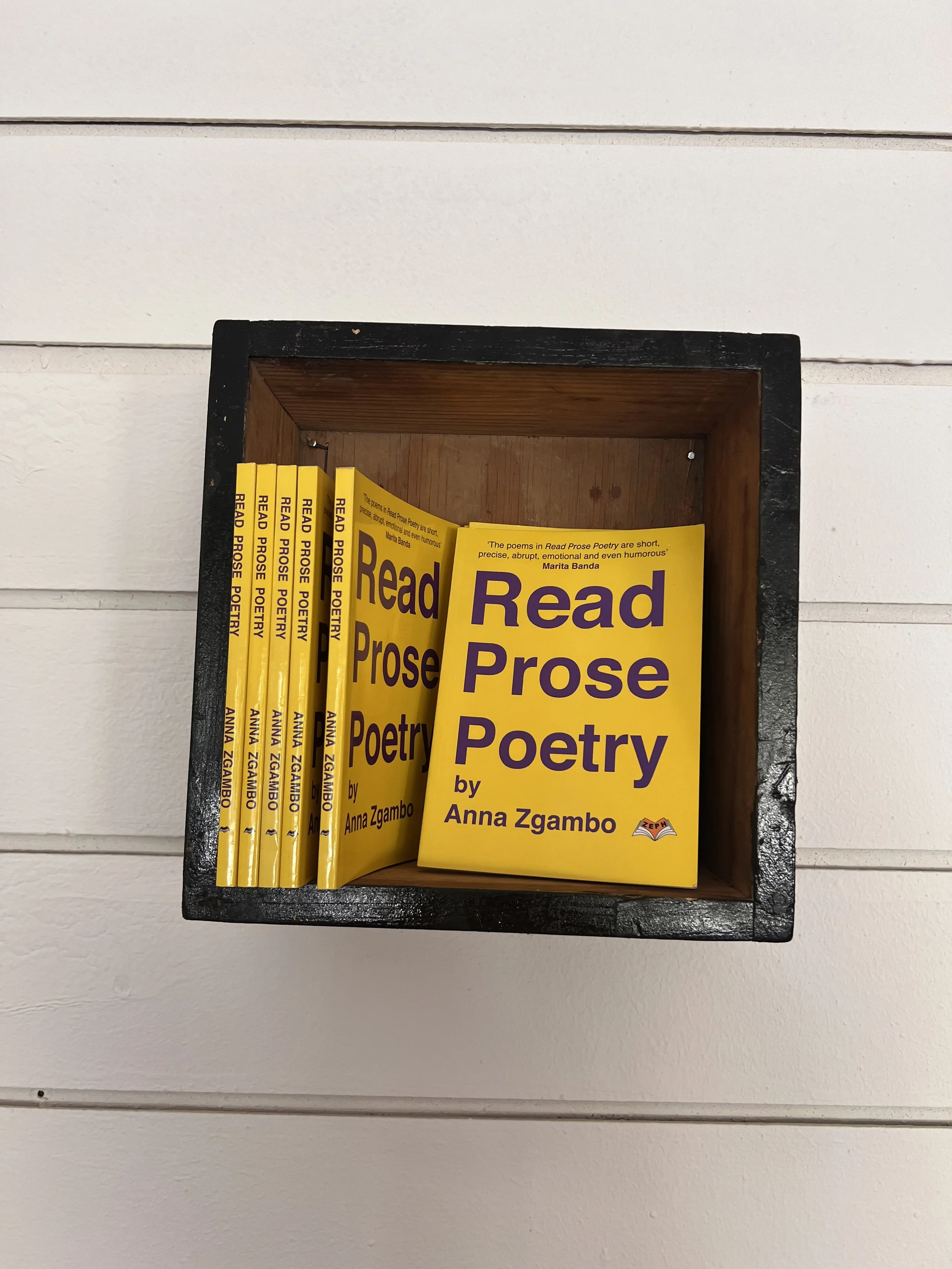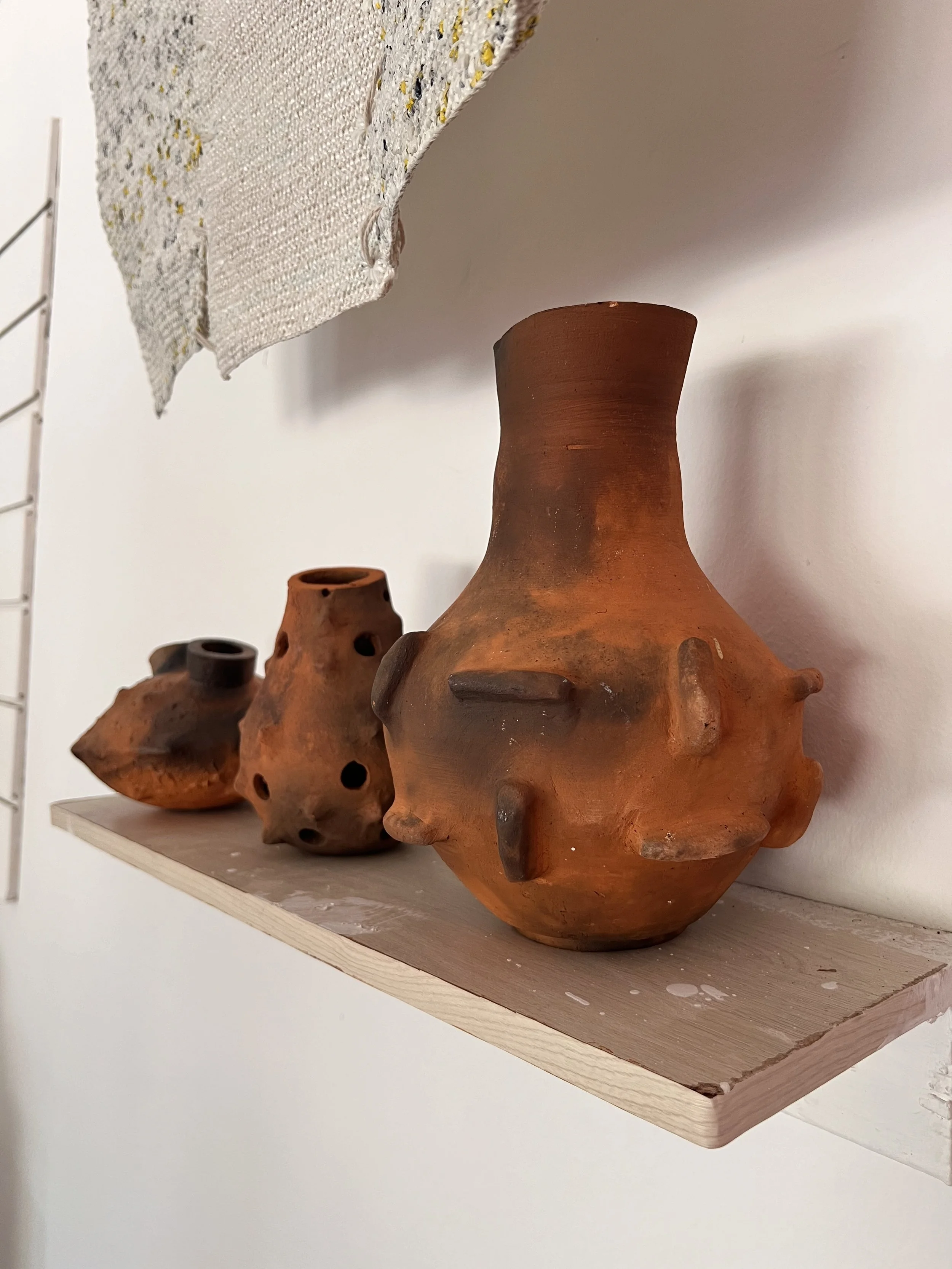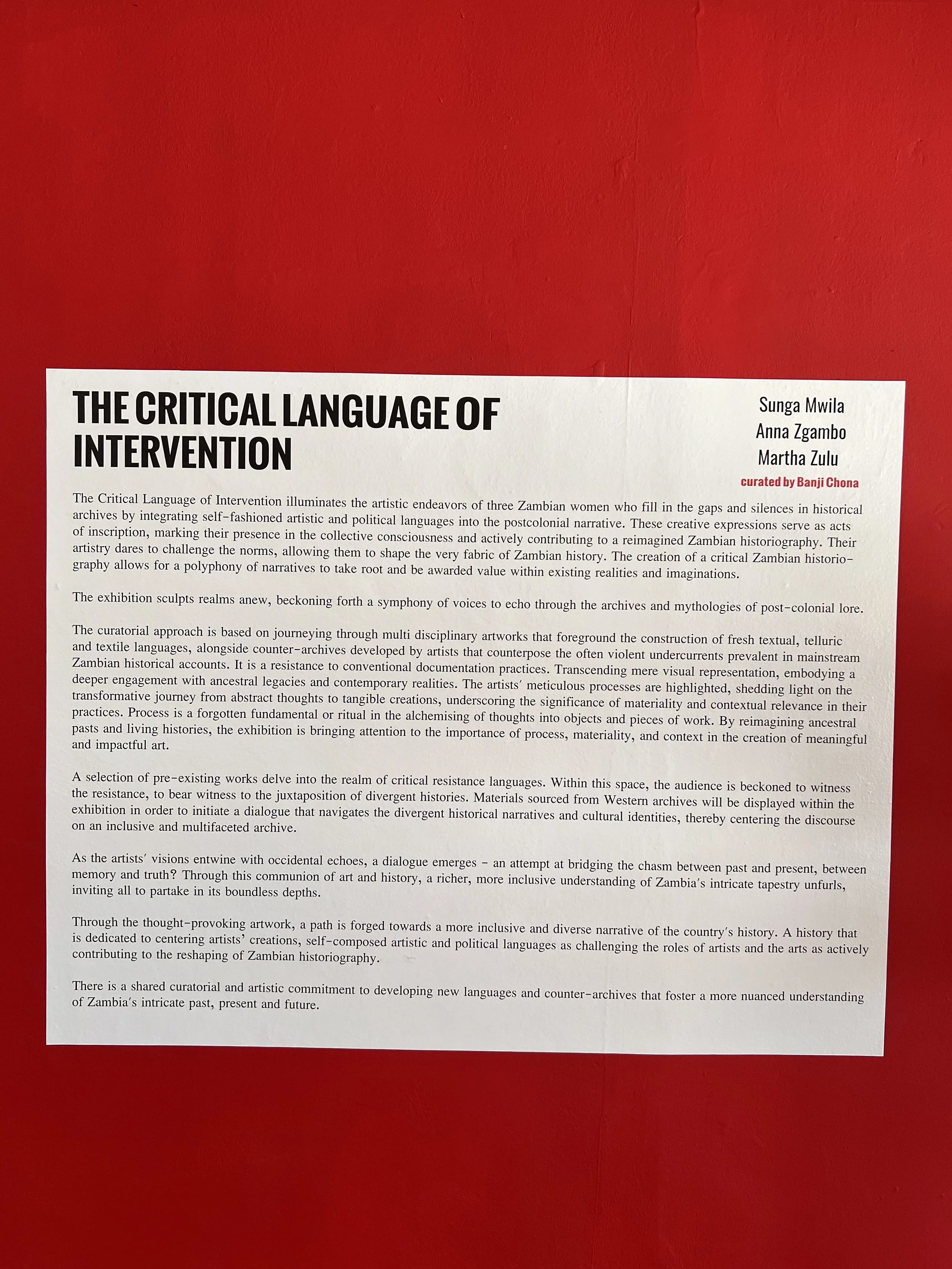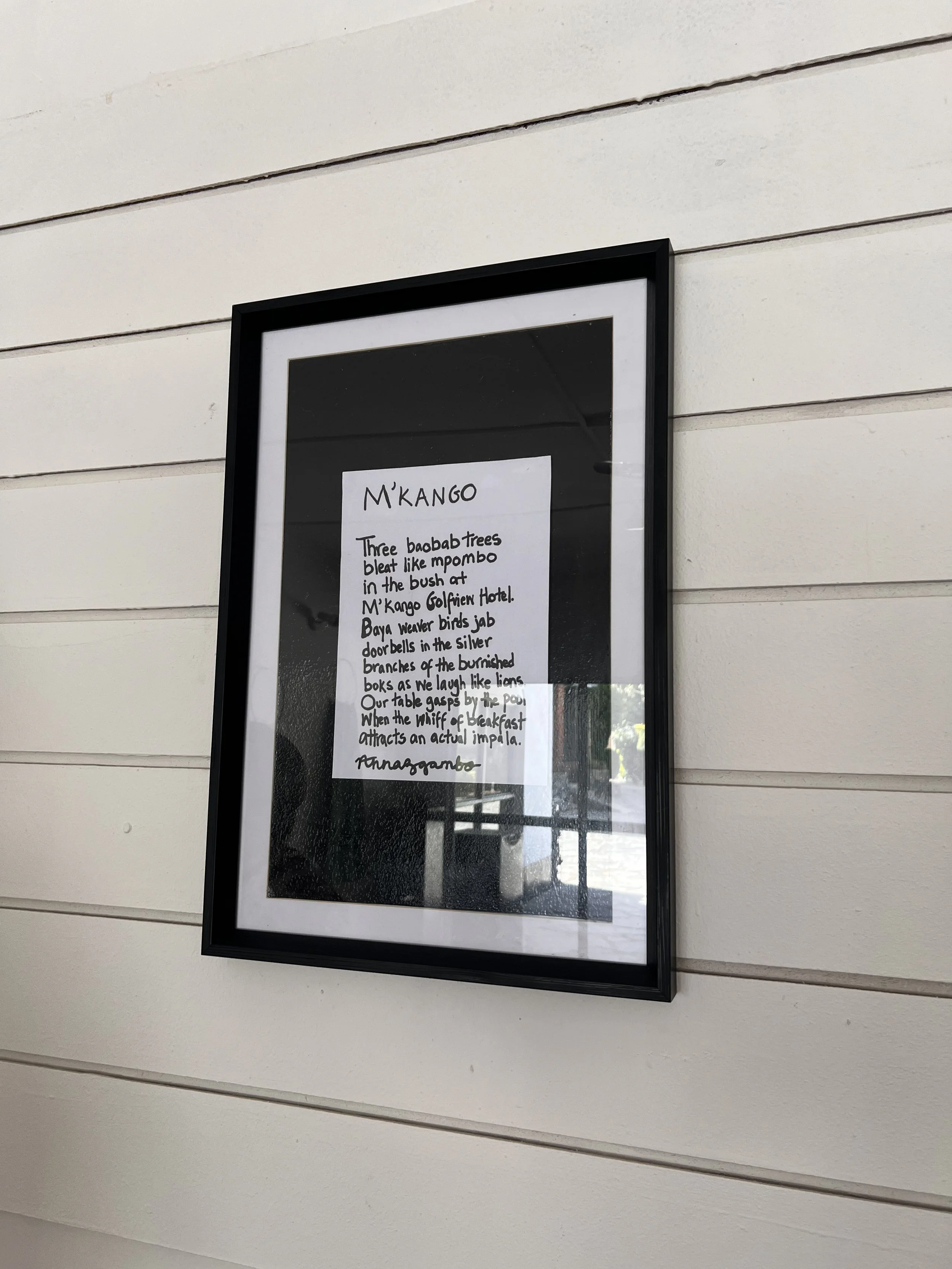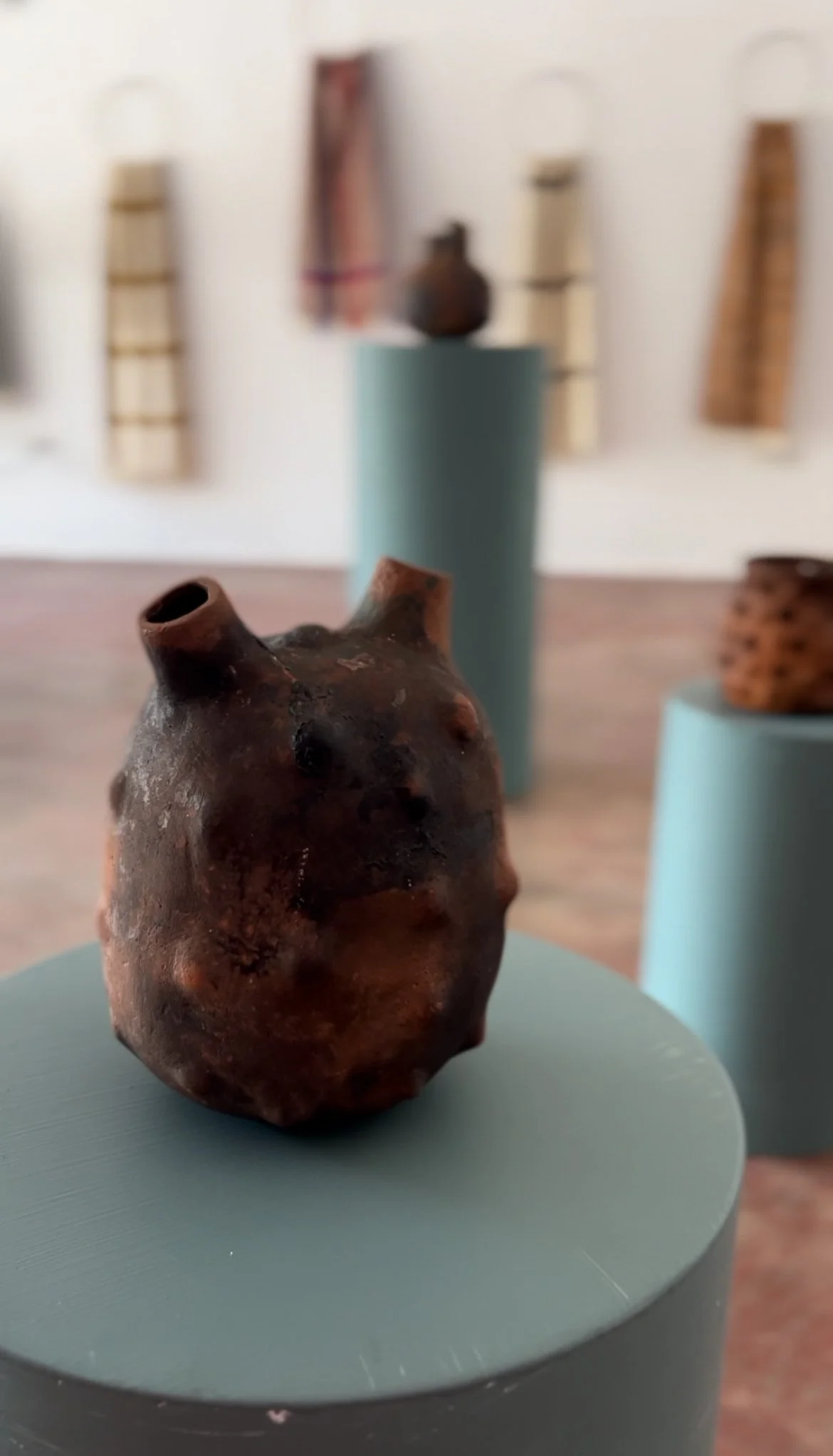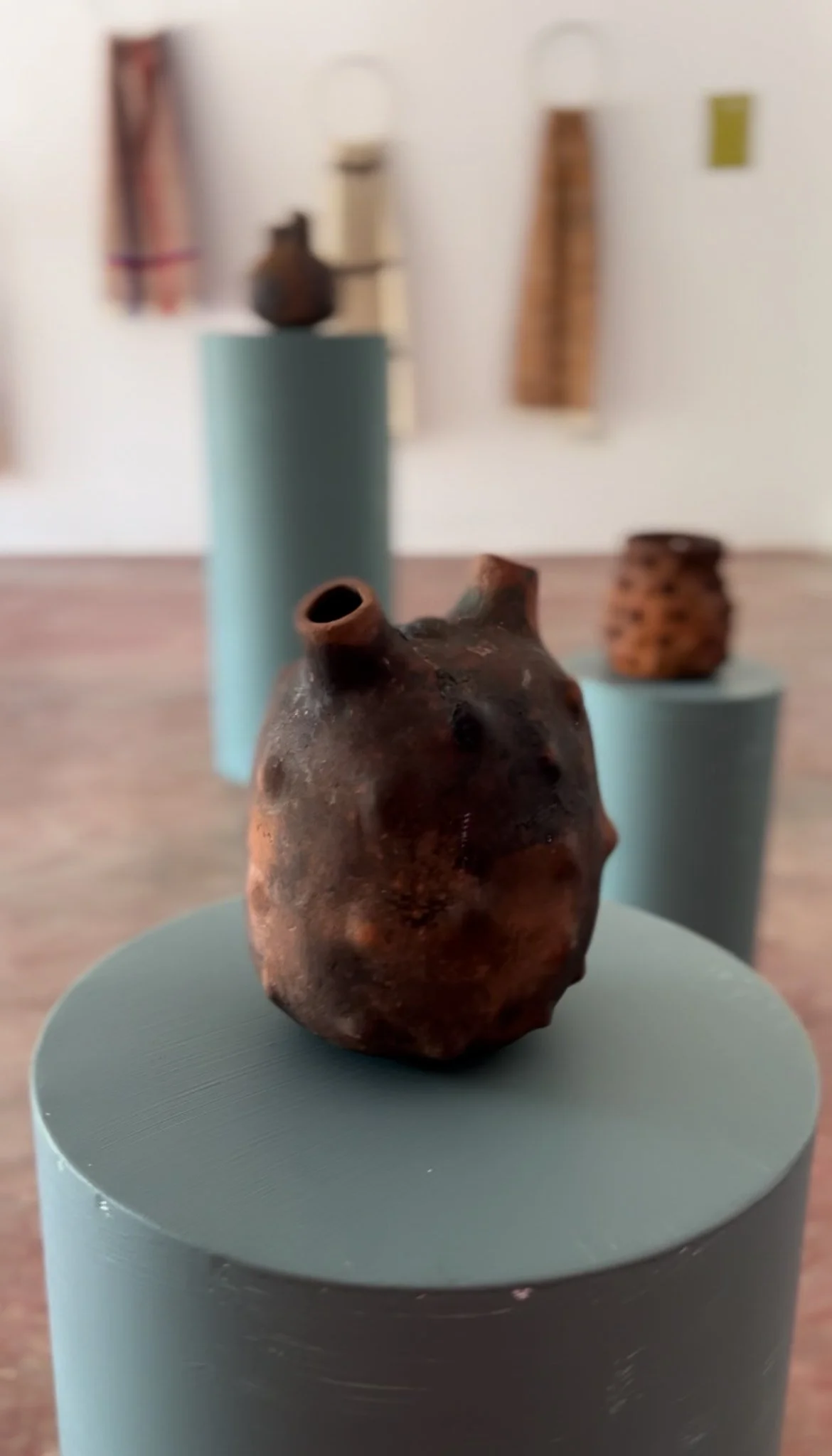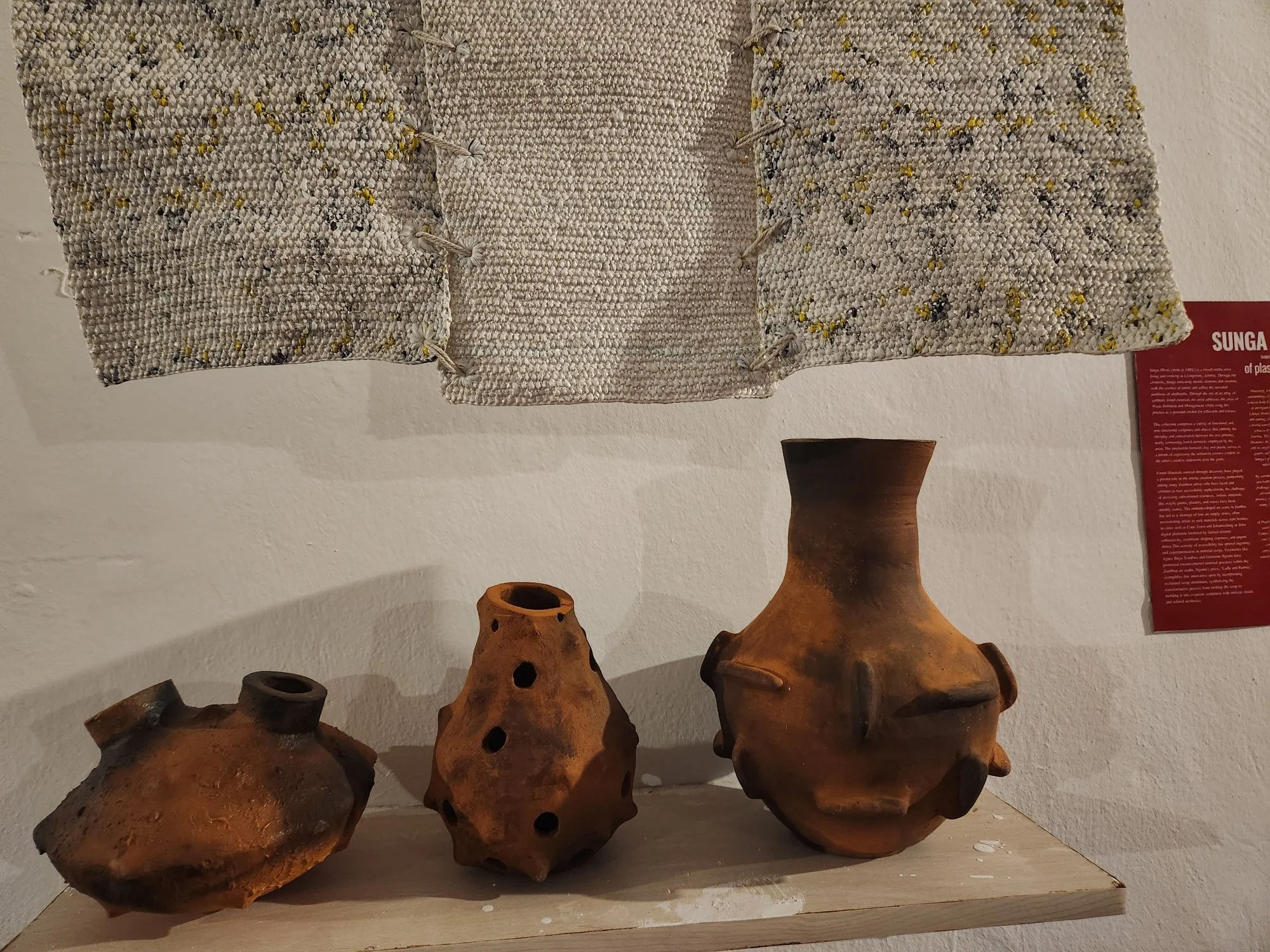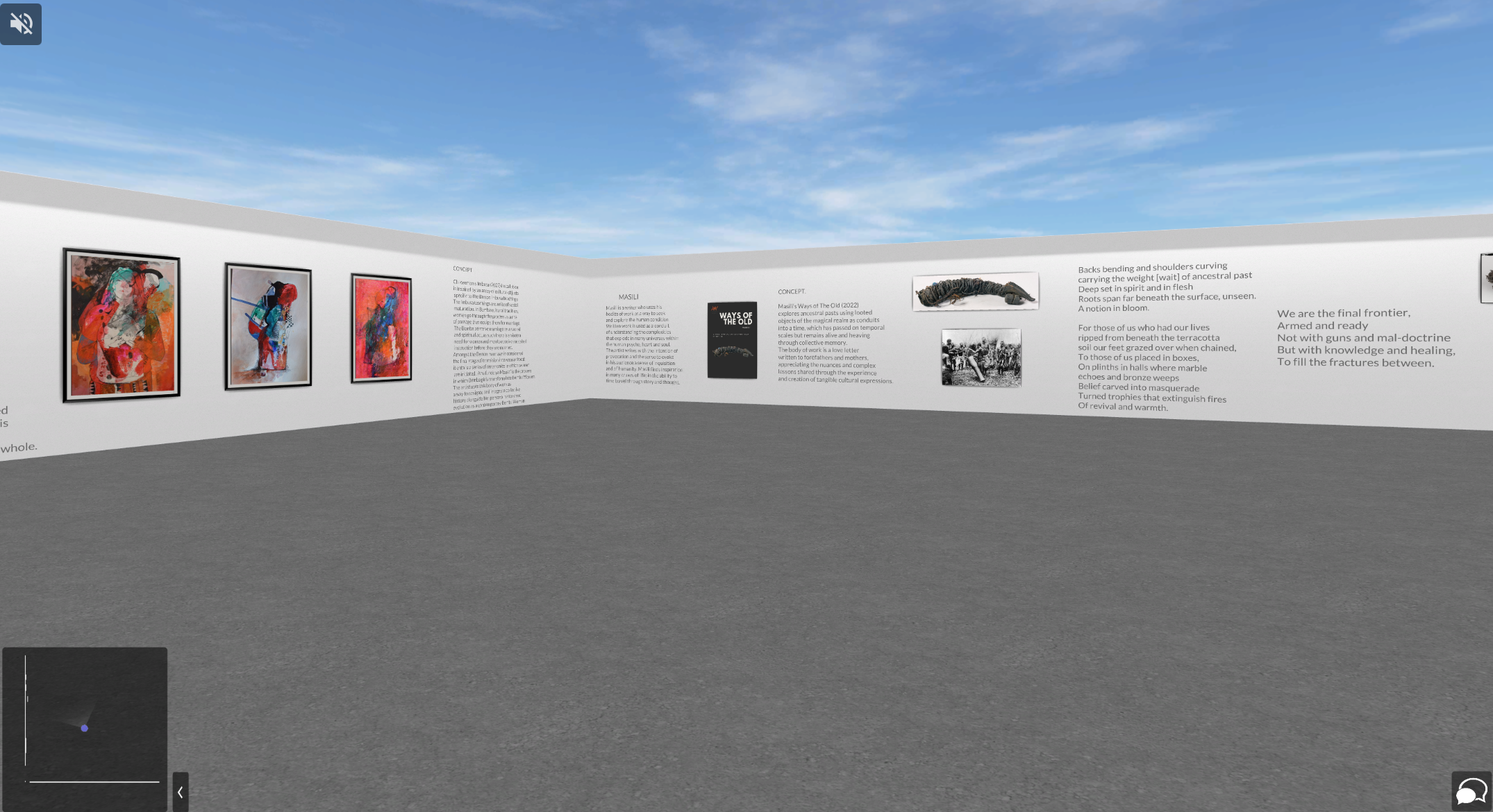
Fractures is the collective name for a series of roundtables, symposiums, workshops and exhibitions (physical and virtual) curated by Banji Chona for The Women’s History Museum. The gatherings are dedicated to the examination of the palpable tension experienced between the historical archive and contemporary living histories. This nomadic series of interventions explores cross sections, patterns and grooves, melodies and poetry; the result of reimagined and alchemised histories, objects and subjects and mark makers within the context of Contemporary Zambian Art.
The first iterations of Fractures were a series of exhibitions and workshops in collaboration with the Alliance Française de Lusaka. Held in March and May of 2023, the showcase featured the work of young artists Mwamba Chikwemba, Edith Chiliboy, Hannah Mwenzi Siliya, Masili, Nchawaka and Natasha Mwila. The artists, who are all based in Lusaka, have been a part of the many microcosms of this rolling project which began as Fabricated Stories, a research and production residency based on the re-working of Indigenous Zambian histories inscribed in objects and photographs found in the Swedish Museum of World Culture.
These objects, conduits of cultural histories have been digitally repatriated through the collaborative Shared Histories Digital Repository. A collection of over 1000 photographs, documents, objects and artefacts with their provenance in Zambia.
The exhibitions and contained processes of extraction took form of aesthetic, sonic and textured representations on the dialogue between historical and contemporary Fractures. A dialogue centred around the inqury into ancestral knowledges and technologies being housed in glass boxes within various Eurocentric museums and institutional archives across the globe.
They are maps of possible futures. A series of artful protests. Projections of the possibilities of healing data gaps and cultural wounds through artistic creation.
The most recent iteration of Fractures is The Critical Language of Intervention, a series of exhibitions, talks and live performances featuring the work of Anna Zgambo, Sunga Mwila, Martha Zulu and Samba Yonga initially took place as part of the IMPAC Festival. “iMPAC is an extension of the Open Window University’s profile, which endeavours to create initiatives whereby the University links with creative arts institutions and industry bodies within Africa and the globe, to exchange ideas, share practices, and engage with the Zambian arts community at large. Furthermore, we have recently established The Research Institute at the Open Window University, and are launching our research space through an academic symposium that will run concurrently with the arts festival. The 2024 iMPAC Arts Festival investigates Intersections in Music, Performance, Art & Cinema and welcomes interdisciplinary experiments and explorations, while the 2024 iMPAC Symposium will investigate the role of the Creative and Expressive Arts in Therapy, Education, Professional Practice, Community and African Culture”
The exhibition has been extended and will run until the 21st of April 2024
NOW SHOWING
Curatorial Statement
The Critical Language of Intervention illuminates the artistic endeavors of three Zambian women who fill in the gaps and silences in historical archives by integrating self-fashioned artistic and political languages into the postcolonial narrative. These creative expressions serve as acts of inscription, marking their presence in the collective consciousness and actively contributing to a reimagined Zambian historiography. Their artistry dares to challenge the norms, allowing them to shape the very fabric of Zambian history. The creation of a critical Zambian historiography allows for a polyphony of narratives to take root and be awarded value within existing realities and imaginations. The exhibition sculpts realms anew, beckoning forth a symphony of voices to echo through the archives and mythologies of postcolonial lore.
The curatorial approach is based on journeying through multi disciplinary artworks that foreground the construction of fresh textual, telluric, and textile languages, alongside counter-archives developed by artists that counterpose the often violent undercurrents prevalent in mainstream Zambian historical accounts. It is a resistance to conventional documentation practices. Transcending mere visual representation, embodying a deeper engagement with ancestral legacies and contemporary realities. The artists' meticulous processes are highlighted, shedding light on the transformative journey from abstract thoughts to tangible creations, underscoring the significance of materiality and contextual relevance in their practices. Process is a forgotten fundamental or ritual in the alchemising of thoughts into objects and pieces of work. By reimagining ancestral pasts and living histories, the exhibition is bringing attention to the importance of process, materiality, and context in the creation of meaningful and impactful art.
A selection of pre-existing works delve into the realm of critical resistance languages. Within this space, the audience is beckoned to witness the resistance, to bear witness to the juxtaposition of divergent histories. Materials sourced from Western archives will be displayed within the exhibition in order to initiate a dialogue that navigates the divergent historical narratives and cultural identities, thereby centering the discourse on an inclusive and multifaceted archive.
As the artists' visions entwine with occidental echoes, a dialogue emerges - an attempt at bridging the chasm between past and present, between memory and truth? Through this communion of art and history, a richer, more inclusive understanding of Zambia's intricate tapestry unfurls, inviting all to partake in its boundless depths.
Through the thought-provoking artwork, a path is forged towards a more inclusive and diverse narrative of the country's history. A history that is dedicated to centering artists’ creations, self-composed artistic and political languages as challenging the roles of artists and the arts as actively contributing to the reshaping of Zambian historiography.
There is a shared curatorial and artistic commitment to developing new languages and counter-archives that foster a more nuanced understanding of Zambia's intricate past, present and future.





Exhibition Archive
by Edith Chiliboy
Exhibition Events
Accompanying the exhibition are a series of events such as workshops, interactive live performances, screenings and more. The closing event, Social Intervention is a critical gathering of artists and the public oriented around fostering interactive communities of support. A group of artists working in and around Lusaka have been invited to join this event as a way to nurture space sharing.
Class: Pottery
Facilitator: Sunga Mwila
Date: Friday, 19 April 2024
Time: 14:30 to 16:30 hours
Venue: Wayiwayi Art Gallery and Studio, Livingstone
Fee: 250
The participants will learn the basics of pottery techniques such as pinching and coiling. At the end of the session all finished products will be fired and made available for pick up within two weeks.
Enquiries: hello@whmzambia.org
event details
Open Studio: Lionde Zulu Weavers
Facilitator: Martha Zulu
Date: Monday 8th to Friday 12th April 2024
From 10:30 to 17:30 hours
Venue: Lionde Zulu Studio, Lusaka CBD
Martha Zulu has been weaving Zambian grown cotton into a range of beautifully crafted textiles since 1984. Visit the Lionde Zulu Weaver Studio and get to know the intricate process of cotton weaving.
Enquiries: hello@whmzambia.org
Social Intervention
Gathering and Art Sale
20th April 2024
Amaka Lodge
BDOUBLEX
ERICA KAPAYA
MIKA MARFFY
LAZARINA MATUTA
BRUNO MILAMBO
MAINGA MUVUNDIKA
MWABA CHANDIA
CHUCK VAN DUSTY
The closing event Social Intervention is a critical gathering of artists and the public oriented around fostering interactive communities of support. A group of artists working in and around Lusaka have been invited to join this exhibition as a way to nurture space sharing.
The artists come together to share a vibrant mix of perspectives, talents, and experiences that promise to ignite new connections and collaborations. Through their shared dedication to using art as a tool for expression, these artists are set to engage with the public and each other in a meaningful way. Together, they will weave a tapestry of creativity and empathy, laying the foundation for a future where art serves as a bridge to build stronger, more inclusive communities. With their collective energy and vision, the Social Intervention is sure to leave a lasting impression and create ripple effects of critical change throughout the artistic landscape of Lusaka and beyond.
The event will feature live performances from DJs, musicians and sound artists who are pushing the bounds of known sounds using their unique sonic languages
The audience will be taken on a journey through sounds. From the rhythmic beats of the DJs to the soul-stirring melodies of the musicians and the experimental compositions of the sound artists, attendees can expect to immerse themselves in diverse sonic experiences. Each performer will bring their own distinct voice and style exploring the endless possibilities of sound and a redefinition of the limits of what is sonically possible.
Past Events
During this live performance, which took form of an interactive poetry reading, exhibiting literary artist Anna Zgambo read from her anthology Peruse Every Poem. The text deals with contextualising the Poetry Crisis which can be defined as the gaps in the nurturing and support of the reading, writing and publishing of poetry in Zambia. She refers to the history of writing in Zambia, citing the colonial fractures which have resulted in the contempoarry crisis.
“Literary history. Like a despot stifling democracy. European imprelaism suppressed expression and suffocated storytelling. In the nefarious 1930’s the African Literature Committee of Northern Rhodesia scortched publications to colonise Africans. From the trenches of the 1940’s the British Emore banned books by revolutionary wroters who roared resistance in the colony. during the despotic 1950s the joint Northern Rhodesia and Nyasaland Publications Bureau muzzled authors who snarled the lyrics of politcal independence.”
In the discussion entitled Lost in Code: The Appropriation of African Art, The Women’s History Museum of Zambia co-founder Samba Yonga shared her sentiments on ‘the things that keep her up at night.’
“What happens when you don’t have the ability to translate a language? What do you lose? What replaces the loss and what do you communicate when you are now using a language that has diluted the original form of expression and has missing parts? The talk shares ideas of loss and replacement. Loss of the language of knowledge, the language of communication and the language community that guided our ways of being and living before the interruption of colonisation and subsequent post-independence industrialisation and the reformation of the notion of nation. It also explores what using language of survival misses and forgets. Can finding those missing pieces of code allow us to build a society with inclusive impact and methods of knowledge production that allows for the expression, documentation and accessibility of valuable indigenous knowledge systems? Or is it a lost cause?”
The topical focus was the misinterpretation of Chokwe Symbolism and Stories which have been etched into various masks which are now at the hands of western institutions and western intepretations. Rendering the original meaning lost in translation.
EXHIBITION REVIEW BY DR ANDREW MULENGA
“Of literary and visual arts sharing gallery space”
To read the full article buy an e-paper here for K10
Community Photo Archive

Fractures: Trajectories
9.3.23 - 1.6.23
curator: Banji Chona
Artists: Masili, Tasila Mwale, Nchawaka Kanyama, Mwamba Chikwemba, Edith Chiliboy, Natasha Mwila, Hannah Siliya
The Fracture is representative of extraction, presentation, disruptions and silence; of the indigenous and the foreign; It is representative of the process of the (re)creation of meaning and the reorientation of the fragments of the many Zambian pasts which have been dispersed across spectrums of existence and understanding.
curatorial statement
This showcase is part of a series of rolling or travelling exhibitions which explore cross sections, patterns and grooves, melodies and poetry; the result of reimagined and alchemised histories, objects and subjects within the present day context of Contemporary Zambian Art.
Trajectories presents the work of six young Zambian artists working within the city of Lusaka. Natasha Mwila is the newest artist in the long-term Fabricated Stories residency. Alumni artists Mwamba Chikwemba, Edith Chiliboy, Tasila Mwale, Masili and Nchawaka Kanyama have been a part of the many microcosms of this now two-year-old project which began as Fabricated Stories, a research and production residency based on the re-working of Indigenous Zambian objects and artefacts, in their stories and form (tangible and intangible) These objects /subjects, conduits of cultural histories/artefacts/ housed in the Swedish Ethnographic Museum in Stockholm and soon through The (Digital) Cultural Heritage repository Shared Histories are currently part of a collection of over 1000 objects and artefacts, to which Zambia can be traced as their home or space of provenance. The exhibition and processes of extraction are an oral, kinaesthetic, sonic and textured representation of how historical and contemporary Fractures are in dialogue within the context of the ancestral knowledge and technology found in and amongst objects/artefacts/art which are currently housed in glass boxes within various occidental museums and institutional archives across the globe.
It is mapping of possible futures and presentism. An artful protest. It is a projection of the possibilities of healing data gaps and cultural wounds through present day creation.
VR EXHIBITION
Artist Highlight
EDITH CHILIBOY
Edith Sampa Chiliboy is a self taught photographer that specializes in fine art photography. She believes photography is a journey in which she not only gets to explore and understand the elements of environments she lives in but also gets a chance to explore her own existence and what roles she plays in order to make a meaningful contribution to the current times she's existing in. Each project she takes part in is a chance for her to explore her art and to push the limit of the eye by looking beyond what is being shown on the surface and instead capture what isn't being said but felt or emotional context exhibited by her subjects.
see work below
Trajectory
Using the photographs as the medium for the message, Chiliboy taps into the Reimagination of contemporary bridal aesthetics by creating a hair sculpture inspired by an Afro Comb carved by the people of the water lands of the Bangweulu in the North. The artists' sculpture contextualises and places significance on the importance of the tool used to sculpt and form the hair of a bride and challenges the notion of occidental aesthetics taking precedence over indigenous Zambian aesthetics in the wedding process.
In addition to this, the artist uses beads, cowrie shells and the Mwanapweo masks of the Chokwe within the composition of the image in order to allude to the historical significance of these objects or adornments within the context of rituals or ceremonial celebration. Cowrie shells signified wealth and status within many Zambian societies. Beads carried many varied meanings strung into their colour composition. Beads which have their provenance in a baUshi community in the Northern province have three main colours to the body of the adornment using colours as a means for storytelling philosophies. Blue, a representation of water and renewal. Red a representation of war and bloodshed. White, a representation of purity and metamorphosis.
These are all colour philosophies that could be transferred into the conception of marriages.
